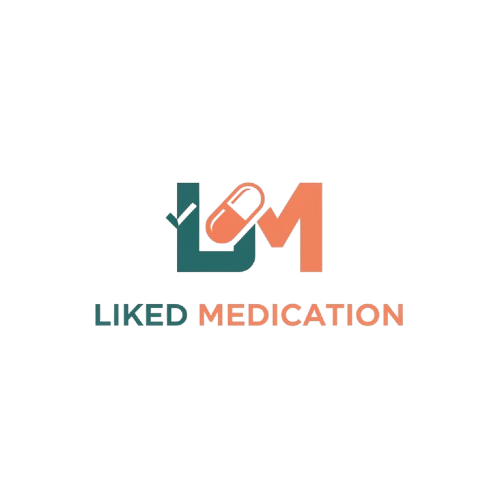Herbalist Remedies – Natural Healing Solutions for Body & Mind
Table of Contents
-
Introduction
-
What Are Herbalist Remedies?
-
Benefits of Herbal Remedies
-
Natural & Safe
-
Affordable Wellness
-
Mind & Body Balance
-
-
Popular Herbal Remedies You Should Know
-
Chamomile
-
Ginger
-
Turmeric
-
Peppermint
-
Ginseng
-
Aloe Vera
-
-
Herbal Remedies for Mental Wellness
-
How to Incorporate Herbalist Remedies into Daily Life
-
Risks and Precautions
-
Final Thoughts
1. Introduction
In today’s fast-paced world, more people are turning back to herbalist remedies as a natural alternative to synthetic medications. For centuries, cultures around the globe have relied on herbs, roots, leaves, and natural extracts to heal the body, calm the mind, and restore balance.
Unlike pharmaceutical drugs, herbal remedies are rooted in tradition, often passed down through generations. Today, modern science also confirms many of their benefits, making them a powerful option for anyone seeking holistic and natural healing solutions.
2. What Are Herbalist Remedies?
Herbalist remedies are natural treatments created from plants, roots, seeds, and flowers. They can come in many forms, including:
-
Herbal teas for relaxation and digestion
-
Tinctures and extracts for concentrated healing
-
Topical creams and oils for skin health
-
Herbal supplements for overall wellness
An herbalist someone trained in herbal medicine carefully selects specific plants to treat various conditions, ranging from digestive issues to stress, insomnia, and chronic inflammation.
3. Benefits of Herbal Remedies
Natural & Safe
One of the greatest advantages of herbal remedies is their natural origin. They are generally gentler on the body compared to synthetic drugs, with fewer side effects.
Affordable Wellness
Herbal medicine is cost-effective. Many remedies can be grown in your own garden or found at local markets, making them accessible to nearly everyone.
Mind & Body Balance
Herbs do more than heal physical conditions. Many are known to calm the mind, reduce stress, and improve emotional well-being

4. Popular Herbal Remedies You Should Know
Chamomile
-
Used for relaxation and better sleep
-
Helps with mild digestive issues
-
Popular as a calming tea
Ginger
-
Reduces nausea and motion sickness
-
Aids digestion and improves circulation
-
Acts as a natural anti-inflammatory
Turmeric
-
Contains curcumin, a strong antioxidant
-
Reduces joint pain and arthritis symptoms
-
Supports overall immune health
Peppermint
-
Relieves bloating and indigestion
-
Improves breathing and clears sinuses
-
Helps reduce tension headaches
Ginseng
-
Boosts energy and mental clarity
-
Strengthens the immune system
-
Helps the body adapt to stress
Aloe Vera
-
Soothes skin irritations and burns
-
Supports digestion when taken internally
-
Popular in natural skincare products
5. Herbal Remedies for Mental Wellness
Herbal medicine doesn’t just treat the body—it also supports the mind. Here are some of the best herbs for mental and emotional health:
-
Lavender → Reduces anxiety and promotes sleep
-
St. John’s Wort → Supports mild depression and mood balance
-
Ashwagandha → Boosts energy, reduces stress, and improves focus
Incorporating these herbs into your daily routine can lead to better emotional balance and mental clarity.
6. How to Incorporate Herbalist Remedies into Daily Life
Adding herbal remedies to your lifestyle is easier than you might think. Here are a few practical ways:
-
Start with Herbal Teas – Drink chamomile before bed or peppermint after meals.
-
Cook with Healing Herbs – Add turmeric, ginger, or garlic to your dishes.
-
Use Natural Skincare – Try aloe vera or herbal-infused oils for healthy skin.
-
Take Supplements Carefully – Choose high-quality herbal capsules if you prefer convenience.
-
Create a Routine – Consistency is key for herbal remedies to work effectively.
7. Risks and Precautions
Although herbal remedies are natural, they’re not risk-free. Keep these points in mind:
-
Some herbs can interact with prescription medications.
-
High doses may cause side effects.
-
Pregnant women and individuals with chronic illnesses should consult a doctor before use.
Always buy herbs from trusted sources to ensure purity and safety.
8. Final Thoughts
Herbalist remedies provide a bridge between traditional wisdom and modern wellness. From calming teas to powerful anti-inflammatory herbs, these natural solutions can support your body, mind, and spirit.
By incorporating herbal medicine into your routine, you can enjoy better health, greater energy, and emotional balance—without relying solely on synthetic drugs.
Take the first step toward natural healing today—try adding one herbal remedy to your lifestyle and feel the difference

9. A Brief History of Herbal Medicine
Herbal remedies are not a new trend. They have been at the core of traditional medicine systems for thousands of years.
-
Traditional Chinese Medicine (TCM): Uses herbs like ginseng, licorice root, and goji berries to balance energy (Qi) in the body.
-
Ayurveda (India): Relies heavily on herbs such as ashwagandha, turmeric, and holy basil (Tulsi) to promote balance between body, mind, and spirit.
-
African & Middle Eastern Traditions: Aloe vera, black seed (Nigella sativa), and fenugreek have long been used for healing.
-
Western Herbalism: Chamomile, peppermint, lavender, and echinacea are common remedies used in Europe and North America.
This rich history shows that herbal remedies have stood the test of time, and now modern science validates many of their healing properties.
10. Scientific Backing of Herbal Remedies
While some people dismiss herbal remedies as “folk medicine,” research increasingly supports their benefits. Examples include:
-
Turmeric (Curcumin) → Proven to reduce inflammation in arthritis patients.
-
Chamomile tea → Shown in studies to improve sleep quality and reduce anxiety.
-
Ginger → Clinically effective in reducing nausea from chemotherapy and pregnancy.
-
Peppermint oil → Shown to ease symptoms of irritable bowel syndrome (IBS).
Science is now catching up to what traditional healers have known for centuries.
11. Common Conditions Herbalist Remedies Can Help With
Digestive Health
-
Peppermint → eases bloating and indigestion
-
Ginger → relieves nausea and supports gut health
Stress & Sleep
-
Chamomile → calms the nerves and improves sleep
-
Lavender → reduces anxiety and stress-related headaches
Joint & Muscle Pain
-
Turmeric → natural anti-inflammatory for arthritis
-
Arnica → topical herb for muscle pain and injuries
Immune System Support
-
Echinacea → boosts immune response against colds and flu
-
Ginseng → strengthens resistance to illness
12. Herbalist Remedies vs. Conventional Medicine
| Aspect | Herbalist Remedies | Conventional Medicine |
|---|---|---|
| Origin | Plant-based, natural | Synthetic or chemical |
| Approach | Holistic, treats body & mind | Focused on symptoms |
| Side Effects | Generally mild if used properly | Can be strong, sometimes harmful |
| Cost | Affordable, often homegrown | Expensive prescriptions |
| Effectiveness | Works best long-term with lifestyle changes | Fast relief, but sometimes temporary |
Both systems have value. The best results often come from combining modern medicine with herbal support under medical guidance.
13. Tips for Choosing Quality Herbal Remedies
Not all herbal products are created equal. To ensure safety and effectiveness:
-
Buy from trusted sources – Look for certified organic or well-known herbal brands.
-
Check labels – Avoid products with artificial fillers or chemicals.
-
Start small – Introduce one herb at a time to monitor effects.
-
Seek expert advice – Consult a qualified herbalist or naturopath if unsure.
14. Real-Life Example
Sarah, a 35-year-old office worker, suffered from chronic stress and poor sleep. After trying chamomile tea and lavender essential oil for a few weeks, she noticed deeper sleep and reduced anxiety. She later added turmeric to her diet to reduce occasional joint pain from long office hours. Within three months, her overall health and energy levels improved—without relying heavily on pharmaceutical sleep aids.
This simple story shows how herbal remedies can naturally transform health.
15. Frequently Asked Questions (FAQs)
Q1: Are herbal remedies safe for everyone?
Not always. Some herbs interact with medications, so consult a doctor if you’re on prescriptions, pregnant, or nursing.
Q2: How long does it take for herbal remedies to work?
Unlike synthetic drugs, herbs often take time. You may notice results in days or weeks, but consistent use is key.
Q3: Can I grow my own medicinal herbs?
Yes! Many herbs like chamomile, peppermint, basil, and aloe vera are easy to grow at home.
Q4: Do herbal remedies replace modern medicine?
No. They complement it. Herbs can prevent and manage health conditions, but serious illnesses may require conventional medical care.
16. Final Thoughts
Herbalist remedies are more than just natural alternatives—they are a holistic lifestyle choice. They address the root causes of imbalance, support long-term wellness, and bring harmony to body and mind.
By understanding their benefits, risks, and applications, you can take control of your health naturally. Whether you’re sipping chamomile tea at night, cooking with turmeric, or applying aloe vera on your skin, each herbal step moves you closer to a healthier, more balanced life.
Start small, stay consistent, and embrace the healing power of nature.
SEO Details (for your blog publishing)
Meta Title:
Herbalist Remedies – Natural Healing Solutions for Body & Mind
Meta Description:
Discover the power of herbalist remedies for natural healing. Learn about the best herbal medicines for stress, sleep, digestion, and overall wellness.
Target Keywords:
-
Herbalist remedies
-
Herbal medicine
-
Natural healing solutions
-
Best herbal remedies
-
Herbal remedies for body and mind
-
Herbal remedies for stress and sleep
-
Herbal medicine for digestion
-
Holistic healing with herbs
Disclaimer
The information provided in this article is for educational and informational purposes only. It is not intended to replace professional medical advice, diagnosis, or treatment. Always consult a qualified healthcare provider before starting any new herbal remedy, especially if you are pregnant, nursing, have a medical condition, or are taking prescription medications. Use herbal remedies responsibly and only from trusted sources.


“Really enjoyed this piece it’s a refreshingly simple yet insightful reminder of how traditional herbs like chamomile, turmeric, and peppermint can offer gentle, holistic support for both mind and body. Informative and thoughtful!”
i read more then four times in this Article.
thanks for u info.